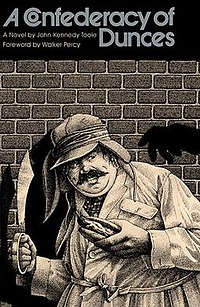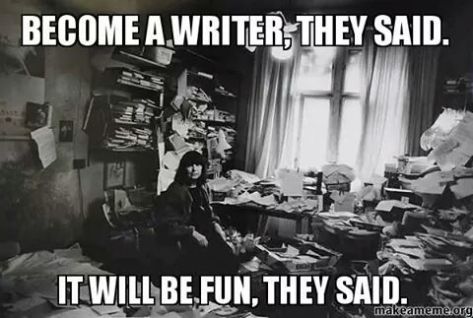The most common use of the word ‘cult’ is a dodgy religion, one which involves brainwashing and that excludes the world through secrecy.
Areas of the arts, particularly film, music and writing are breeding grounds for cults, with enthusiastic followers knowing about work which is largely obscure to the masses. Being labelled a cult author could be seen as a comment on how commercial you are, though there are successful writers who have cult books.
By the qualifier of sales alone, most cult authors write in a literary way. There are some, such as Haruki Murakami who prosper, and whose readers could be labelled a ‘tribe’ or ‘nation’. Even deceased writers, such as Charles Bukowski, still have healthy sales while remaining an acquired taste.

Some authors who wrote a book that once had a cult following, have achieved recognition from masses of readers. The best-known recent example is Stoner by John Williams. John Kennedy Toole’s A Confederacy of Dunces is the perfect example of a book that took years to be published, then won adulation for its deceased author, before becoming a novel read by only a few.

Then, there are the less well-known novelists, who none the less have enthusiastic readers who hunt out-of-print titles and wait for the latest release.
Some of my favourites are Richard Brautigan, Mick Jackson, Brady Udall, Charles Lambert, Justin Cartwright, Tim Gautreaux and Donald Harington.

If you’re looking for a laugh with richly-imagined situational comedy, seek out Brady Udall‘s Mormon novels or Donald Harington‘s Ozark Mountains sagas. Richard Brautigan’s style is unique and his stories can be funny, sinister and moving in their emotional intensity.

Mick Jackson, Charles Lambert and Justin Cartwright are British novelists, whose fluid writing style is a joy to read, yet they’re largely overlooked in favour of hacks who’ve got lucky with a bestseller.

Tim Gautreaux is a poet, short story writer and novelist, and his novel The Clearing is one of my favourites.

Do you follow any cult authors?
What hidden literary gems do you know about?




